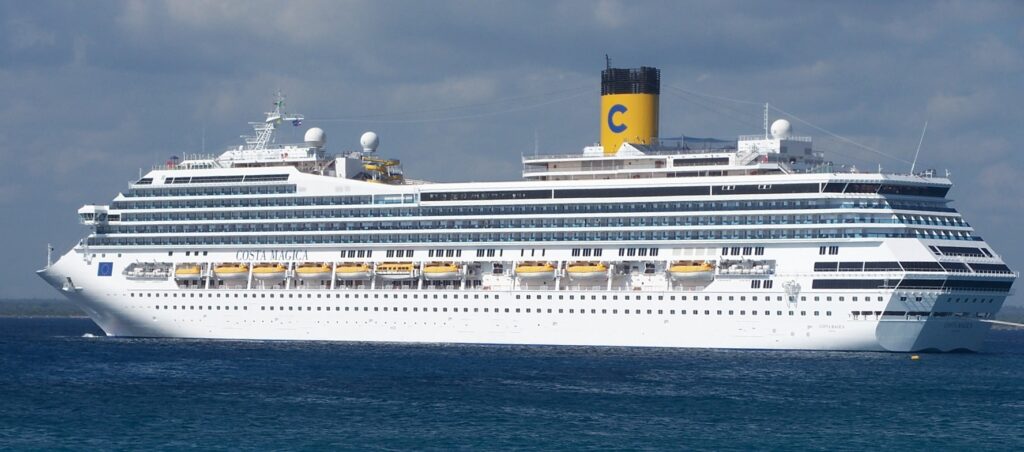
Formerly incarcerated persons who wanted to cruise the seas on luxury liners have reported that they encountered policies that resulted in cancelled bookings after the cruise lines had learned of their criminal records.
Research by the San Quentin News found that many cruise lines reserved the right to deny boarding to formerly incarcerated persons. On cruises with destinations beyond the U.S., various governmental restrictions figured into the refusals, too.
“Love, exciting and new; come aboard, we’re expecting you …” went the theme song of the 1970s television show “The Love Boat” but in today’s reality, the next line might very well say, “Unless you have a criminal record, then please go away.”
Cruise lines cited various reasons for refusing passage to the returned citizens.
“Carnival [Cruise Lines] … reserves the right to deny boarding to any persons convicted of certain crimes which may include but are not limited to aggravated physical assault, sexual assault, and other sexual offenses, armed robbery and related offenses, and other violent or immoral crimes,” said a disclaimer. It continued, “Carnival also reserves the right to access public records containing information about any felonious convictions as part of its guest screening.”
In short, if a background check conducted by Carnival revealed a booking from a person with a criminal record, the cruise line could deny boarding to that person. Carnival would then issue a refund.
A San Quentin News survey of policies by Royal Caribbean Group, Princess Cruise Lines, Carnival Cruise Line, Norwegian Cruise Lines, Virgin Voyages, and Viking Cruises revealed that all of them had similar policies.
Some of these policies had great specificity while others did not. Royal Caribbean International’s policies said they conducted background checks on prospective passengers and might deny boarding based on their findings. Disney’s terms and conditions stated that they reserved the right to refuse passage to guests with criminal backgrounds.
One group of returned citizens would almost always end up with a denial of passage: Registered sex offenders have the hardest time booking cruises. The public afterlife of sex offenses and the ease of access of information about the offenders have made them the low-hanging fruit of criminal-record checking. Denying this particular demographic would allow cruise lines to claim having proactive policies that keep passengers safe.
Norwegian Cruise Lines has not allowed registered sex offenders on their ships since June 1, 2022, according to a printout of a travel blog. “We planned this new cruise on NCL with 12 other family members, my husband and I for a family vacation,” said one post by a refused passenger who did not disclose her name. “I received a call from NCL one week prior to the cruise and was told my reservation was being canceled and because I was on the sex offender registry … I could not appeal the decision.”
Sexual assaults have plagued the cruise industry for years. An abundance of alcohol played a major role in many such crimes, the report said. Legal loopholes always exempted cruise lines from disclosing crimes committed outside of U.S. territorial jurisdiction.
Alcohol also played a role in other crimes on cruises, said a San Quentin Rehabilitation Center staff member who asked to remain anonymous. In more than eight cruises, he has seen many drunken fights, even with screened passengers. “They have security and they take care of problems fast,” the staff member said. He added that ships have places for confinement, called a “brig.” Most drunken passengers, though, would end up merely confined to quarters until sober.
“In 2010 Congress passed legislation that would hold cruise ships accountable for passenger safety,” wrote Tiffany L. Peyroux in her report “The Cruise Vessel Security and Safety Act of 2010 Founders on Its Maiden Voyage” published by the Loyala Maritime Law Journal in 2014. The CVSSA “requires protective measures for cruise ship passengers and remedies for anyone who may become a victim of a crime at sea.”
The article also said, “The cruise industry hides statistics of crimes in an effort to present an inaccurate picture to passengers and protect their multi-billion dollar image.” In 2023, the industry produced revenues of $30 billion from 31.7 million passengers, according to the Cruise Line Industry Association. Such high dollar amounts have given cruise lines an incentive to keep up an image of safety and security.
“Cruise lines routinely share passenger data with law enforcement agencies and border authorities in each destination country,” said a printout of a webpage by Dogen Law in Toronto. “Many of these bodies will have information-sharing agreements with foreign countries such as the United States that gives them access to information about any arrests, charges, or convictions that a potential visitor has on their record.”
“I would not fear being on a cruise with former felons who have done their time and reformed themselves. Anyone currently on a wanted list would be stopped at the port prior to boarding by DHS, so I would feel safe,” said retiree Chris Kuzma, a frequent cruise passenger.